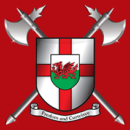History
History of Freemen and Key Acts
In England, the establishment of “burgs” by King Alfred of Wessex provided a safe environment for tradesmen to work and live free from the control of warlords. These burgs were directly responsible to the King, and their inhabitants, known as burgesses, paid rent for their properties and were distinguished from the rural communities under feudal lords.
1215 - Magna Carta
Magna Carta Libertatum (Medieval Latin for “Great Charter of Freedoms”), commonly called Magna Carta is a royal charter of rights agreed to by King John of England.
It was originally a peace treaty between the king and the Barons. It promised the protection of church rights, protection of freemen from illegal imprisonment, access to swift and impartial justice, and limitations on feudal payments to the Crown.
1835 - The Municipal Corporations Act
Transferred local government responsibilities from the Freemen to elected councils, the Freemen’s guilds continued to exist, often due to their property and charitable functions.
The report from the Select Committee on Freemen of Cities and Boroughs, 1840 listed 35 boroughs where no freemen existed, 97 where freemen had no possessions or property and 46 where they enjoyed property and privileges of various descriptions. (Harry Ward 1975)
1966 - Formation of Freemen of England and Wales
The Association was formed in 1966 in order to provide mutual support to member Guilds and individual Freemen.
It is widely recognised as an authority on matters concerning the Freedom.
The ‘Freemen of England and Wales’ is an association of Guilds, Gilds, Court Leets or similar bodies, and of individual freemen, from towns and cities throughout England and Wales.
1972 - Local Government Act
The formation of FEW prevented this Act taking land away from the Guilds, Gilds or Court Leets. Historically lands across the country were owned by various organisations, who had owned the land hundreds of years, therefore there no Land Registry for these lands. This Act was trying to claim these lands as there was no Land Registry. Freemen lands in some towns and cities remain green spaces.
2009 - Local Democracy Act
This Act enabled women to be able to become Freemen across the country. Prior to this Act there were only a few Guilds, Gilds who could legally have female Freemen. Due to the ancient nature of Guilds, Gilds and Court Leets a change in administration can often mean an Act of Parliament.
Prior to this Act the numbers of Freemen were dwindling.
Modern Freemen
Guilds and associations of freemen can be seen in symbolic regalia attending their ancient cities and towns. The presence of the Freemen adds colour and dignity to civic events. Service and duty remain important in our struggle for survival. ‘The Freedom should always be a dynamic force, not just preserving tradition but looking outwards as well’. (Jim Evans, Berwick, 2007)
